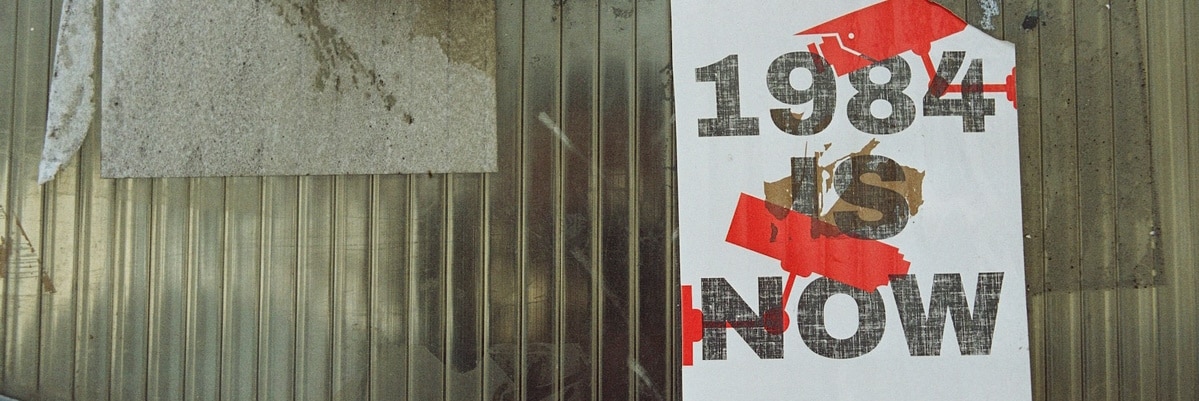On the cancel culture front, the news is now incessant. First the affair around cartoonist Don Rosa's Scrooge McDuck saga, who has been anticipated that some of his works will no longer be republished because of the usual stereotypical portrayals (a complex affair that pulls in Disney, although in fact the mouse company has not confirmed, as it would concern an intermediate publisher). Then Roald Dahl's turn with the Orwellian rewriting operation. Obviously a rewriting in compliance with the whole politically correct phraseology of woke ideology. From fat studies to removing obsolete and offensive terms like father and mother and replacing them with the more generic (and neutral) parents. Again, an operation that has behind it the shadow of one of the great contemporary entertainment industries, Netflix, which took over the foundation that manages Roald Dahl's works from his heirs.
An operation that this time raised more than one eyebrow. But for those who follow the situation, it is certainly nothing new that has incurred to Roald Dahl and Don Rosa. Just think of the case of another great children's writer, Dr.Seuss, the creator of the Grinch, whose publisher had some books go out of print in 2021 because of "dated representations." Unlike then (Dr.Seuss's case was resolved with a shrug) at least in Roald Dahl's case the general public is beginning to take an interest in the story, aware of the implications.
But from the United Kingdom comes another piece of news that attests to the paranoid drift of woke ideology and cancel culture toward literary classics. This time it is the turn of British counterterrorism and its index of books at risk of radicalization. According to an internal briefing, reading Tolkien, Chesterton, Lewis or Orwell puts one on the slope of white supremacist extremism! A very serious operation, to counter radicalism, that results in farce.
But let's go in order. Coming into the eye of the storm was an ambitious program of the British Home Office's Office for Security and Counterterrorism called Prevent that came under scrutiny. A program focused initially on Islamic radicalism and conceived as a new department (called RICU, Research, Information and Communications Unit) set up in 2007 to "prevent the radicalization of potential terrorists."
Over the years it had expanded its activities to include monitoring any form of real or perceived extremism. Nationalists, Brexiteers, and environmentalists (and the RICU had already ended up at the center of controversy for also branding environmental groups cuddled by the media as extremist organizations).
Recently the Prevent program and RICU have been audited, given the not insignificant cost 49 million pounds spent to date, and several materials from the anti-radicalization program have been disclosed. These include the list of books that specialists believe can lead readers to radicalize and become "white supremacists": G.K. Chesterton, Aldous Huxley, J.R.R. Tolkien, Joseph Conrad, C.S. Lewis, and George Orwell!
The list of works to watch out for to see if the targeted British subject shows sympathies for the extremist right and may become radicalized is also completed with movies and TV series. Among the key movies for white supremacists and nationalists, we discover classics of British war cinema, such as The Bridge on the River Kwai and Dambusters.
The hatred and paranoid thinking of a certain woke intelligentsia toward their own national-popular myths is evident. To strike with the stigma of infamy those two films, with RAF pilots sacrificing themselves to stop the Nazi war machine, is to put one's own heritage on the index. It is a tendency that conservative philosopher Roger Scruton had well outlined in 2004 in his essay England and the Need for Nations with the term oikophobia, "the felt need to denigrate the customs, culture and institutions that are identifiably ‘ours’."
The news of this extremist book and movie list was launched by the periodical “The Spectator,” whose author, Douglas Murray, is the writer of a book also "blacklisted" by the Crown's counterterrorism program. But Murray, with characteristic British humor, said he felt he was in very good company. Almost honored for the attention:
So in general, I begin to feel in good company. If government agencies are going to compile lists of suspect books, then I am very happy to stand condemned alongside these fine people, both living and dead.
The news was soon picked up by the “Daily Mail” as well, which kicked it up a notch with a commentary by historian Andrew Roberts, who tried to give the Prevent Program's list an interpretation antithetical to that of counterterrorism:
This is truly extraordinary. This is the reading list of anyone who wants a civilized, liberal, cultured education.
Beyond the inevitable humor Murray points out from the beginning the problem with the list associated with the £49 million anti-radicalization program. This is not the usual overzealous official who, in trawling social media, ended up equating Mein Kampf with The Chronicles of Narnia. Rather, it is about deliberate choices, because the anti-radicalization program was able to rely on the usual NGOs as advisors. Murray writes about the "literary and cinematic" choices of the anti-radicalization list:
In part this is because the Prevent program was advised by left-wing activist groups like Hope not Hate. Such groups have long believed that the definition of far-right should encompass, for instance, many people who supported Brexit.
NGOs, which beyond any meritorious works of prevention, strive to pursue well-defined agendas.
For the time being, the Prevention Program's RICU story seems to be quickly deflating, and British counterterrorism will go in other directions. Yet a list of books and movies that lead to radicalization not only leaves a bitter taste in the mouth, but is yet another line being crossed. Yet another wall being torn down.
And to think ill of it, an op-ed in "The Guardian" from three weeks ago sounds even more sinister and dystopian in light of this "at risk of radicalization" list of authors. It is a seemingly innocuous article signed by Rhiannon Lucy Cosslett and titled Reading is precious – which is why I’ve been giving away my books.
Behind the "book club"/"always tidy house philosophy" headline one reads about how it is okay to get rid of "compromised" books, to turn, in the case of needing to consult an old book, to the marketplaces (libraries not mentioned) at most. Some rather dangerous concepts are then introduced into the debate. Cosslet writes:
The big book purge began when I decided to go through the shelves and discard any book I was vaguely embarrassed to have in the house, for reasons of quality, subject matter, politics or author (look at your shelves and you probably have your own equivalents). […] Only twice have I needed to look something up in a book I’ve thrown away, and rebought a cheap secondhand copy.
The great purge and embarrassing authors, apart from the other nuances of the article (Buddhist echoes, critique of serial accumulation and petty-bourgeois heritage) are clearly an early symptom of cancel culture. Although the author denies it, the subtext for "that embarrassment for authors" is clear.
Among the few to stress the dangerous between-the-lines message of this operation was publisher and intellectual Francesco Giubilei, who reported on it in “Il Giornale.” Only to end up soon targeted by the author on twitter and by Dagospia, mocking him that he "had not understood the meaning of The Guardian article."
Quite evident meaning for those who could read between the lines "The Guardian". The book signed by an embarrassing author is better not to have in the house. And the British counterterrorism program's briefing provides an excellent list of authors best avoided. Reading Orwell or Chesterton might make you radicalized.
After all, they are thought-provoking authors. Better get them out of libraries, public or private. The world of 1984 and Fahrenheit 451 gets ominously closer every day.
An essayist and popularizer, his publications include "Alessandro Blasetti. The forgotten father of Italian cinema" (Idrovolante, 2023). And with Emanuele Mastrangelo "Wikipedia. The Free Encyclopedia and the Hegemony of Information" (Bietti, 2013) and "Iconoclasm. The contagious insanity of the cancel culture that is destroying our history" (Eclectica, 2020).









Fahrenheit 451 ! Solo a sentirlo nominare di nuovo dopo anni da tale lettura, mi sono venuti i brividi. È la sintesi perfetta del problema posto da Petrucci.
Tutti a (ri)leggerlo!